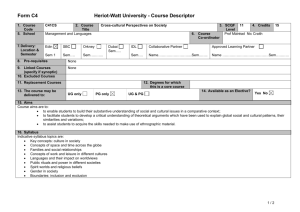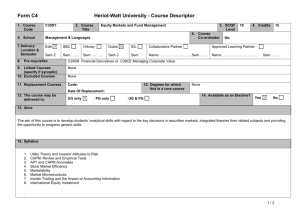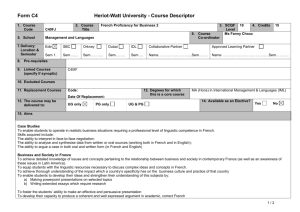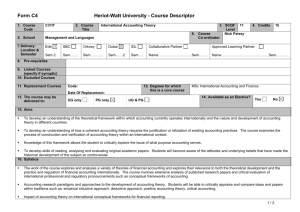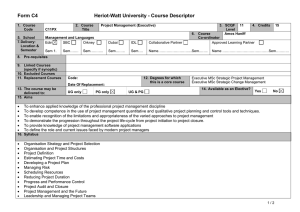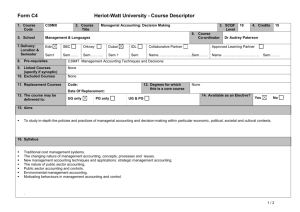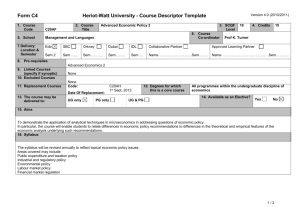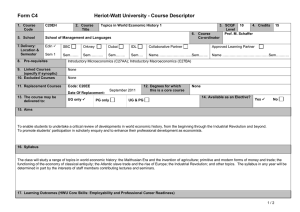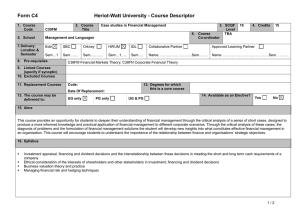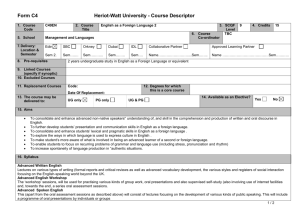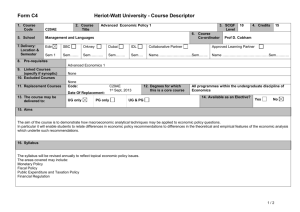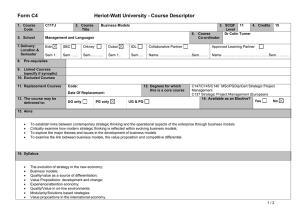Accounting Theory - Heriot
advertisement
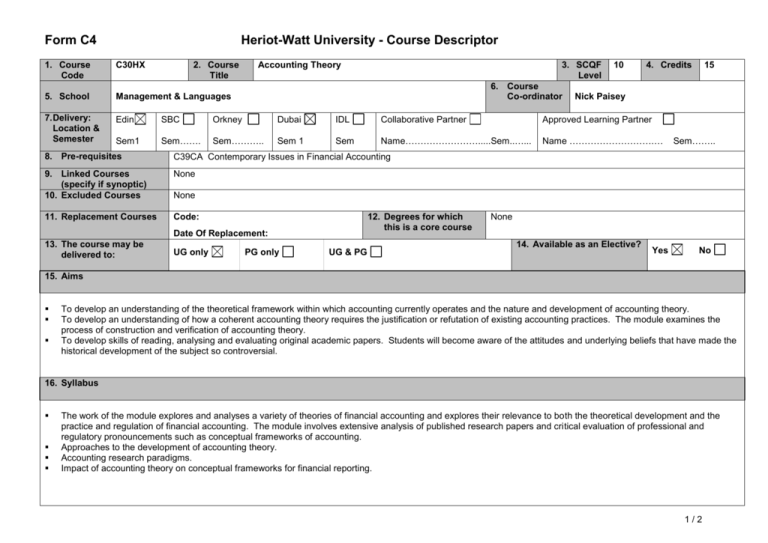
Form C4 Heriot-Watt University - Course Descriptor 1. Course Code C30HX 2. Course Title Accounting Theory 3. SCQF Level 5. School Management & Languages 7. Delivery: Location & Semester Edin SBC Orkney Dubai IDL Collaborative Partner Approved Learning Partner Sem1 Sem……. Sem……….. Sem 1 Sem Name…………………….....Sem..…... Name ……………………….… 6. Course Co-ordinator 8. Pre-requisites C39CA Contemporary Issues in Financial Accounting 9. Linked Courses (specify if synoptic) 10. Excluded Courses None 11. Replacement Courses Code: 4. Credits 15 Nick Paisey Sem…….. None 12. Degrees for which this is a core course Date Of Replacement: 13. The course may be delivered to: 10 UG only PG only UG & PG None 14. Available as an Elective? Yes No 15. Aims To develop an understanding of the theoretical framework within which accounting currently operates and the nature and development of accounting theory. To develop an understanding of how a coherent accounting theory requires the justification or refutation of existing accounting practices. The module examines the process of construction and verification of accounting theory. To develop skills of reading, analysing and evaluating original academic papers. Students will become aware of the attitudes and underlying beliefs that have made the historical development of the subject so controversial. 16. Syllabus The work of the module explores and analyses a variety of theories of financial accounting and explores their relevance to both the theoretical development and the practice and regulation of financial accounting. The module involves extensive analysis of published research papers and critical evaluation of professional and regulatory pronouncements such as conceptual frameworks of accounting. Approaches to the development of accounting theory. Accounting research paradigms. Impact of accounting theory on conceptual frameworks for financial reporting. 1/2 Form C4 Heriot-Watt University - Course Descriptor 17. Learning Outcomes (HWU Core Skills: Employability and Professional Career Readiness) Subject Mastery Understanding, Knowledge and Cognitive Skills Scholarship, Enquiry and Research (Research-Informed Learning) Personal Abilities display knowledge and understanding of the different approaches to developing an accounting theory and be able to critically evaluate and analyse the various approaches; display knowledge and critical understanding of the implications of various theories for the framework of accounting; formulate opinions and conclusions supported by evidence. review and assess complex material in a critical manner; recognise, evaluate and comment critically upon alternative points of view; Industrial, Commercial & Professional Practice reflect on the implications of theory development for professional accountancy practice. compile and synthesise data from a variety of sources; analyse and evaluate critically the subject material; examine the logic and consistency of particular arguments; Autonomy, Accountability & Working with Others plan and organise own learning through selfmanagement; 18. Assessment Methods Method 19. Re-assessment Methods Duration of Exam Weighting (%) Synoptic courses? (if applicable) Coursework Examination Communication, Numeracy & ICT communicate complex ideas effectively by verbal and written means 2 hours Method Duration of Exam (if applicable) 30% 70% 20. Date and Version Date of Proposal 02 February 2013 Date of Approval by School Committee Date of Implementation Version Number 2/2 Diet(s)
